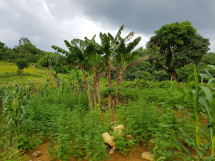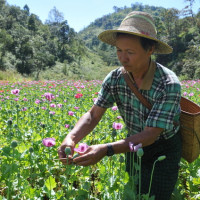Saint Lucia Informal Drug Policy Dialogue on the Future of Cannabis
Topics
Publication date:
This report reflects the discussions held at a meeting in Marigot Bay, Saint Lucia, between October 20- 22, 2022. The meeting was organized by TNI and hosted by the Saint Lucia Bureau of Standards, and was attended by 20 academics, policy makers and activists from Saint Vincent and the Grenadines, Grenada, Dominica, Antigua and Barbuda, Jamaica, Barbados, Trinidad and Tobago and Saint Lucia. The subject of the meeting was centred around the future of cannabis policy in the region.

Downloads
Saint Lucia Informal Drugs Policy Dialogue Report.pdf
(PDF, 106.68 KB)
Average time to read: 15 minutes
The Way Forward
- In acknowledgment of the work being done by the Fairtrade Cannabis Working Group (FTWG) initiated by the Transnational Institute, it was agreed the FTWG could continue to assist the region as countries in the region modernise their failed prohibition cannabis laws.
- There is an urgent need to get Caribbean countries to engage with the new wave of changes in the region as well as in Europe, the Americas etc. During the Informal Dialogue was agreed upon the need of a common Caribbean approach and voice, to push the people’s agenda on cannabis. The Group expressed that a high-level consultation is needed on these matters, aiming at shared recommendations.
- The intention of some countries to allow for full regulation of adult cannabis use is perceived by the group as an opportunity to demonstrate it can be done. Consequently, as a group there is a commitment to work with those countries such as Grenada to help to assist in (1) developing a regulatory model and (2) share previous experiences and the lessons learnt from Jamaica’s, Antigua and Barbuda and Saint Vincent and the Grenadines relationships with investors. Some kind of monitoring deemed important in view of the tendency of some investors to move from one island to another, thus trying to unmask those who had no commitment towards the Member States or traditional cannabis farmers.
- With regard to the future, the group has jointly emphasised the importance of evolving and updating their public education program on cannabis, proposing to develop some guidelines. No specific action was proposed. The public education programme is to be multifaceted with simple, catchy, and convincing messages, including messages from the youth, doctors, scientists, agriculturalist, homemaker, teacher, Rastafari, grassroot etc.
- OECS-CARICOM Cannabis Industry Working Group: The intention to organise, either through CARICOM or other regional bodies, a meeting with the Working Group, Minsters of Health, Ministers of Agriculture, and the regulators was raised, pointing at the fruitful exchange that could be. With the intention of advancing the advancement of the cannabis industry, such seminar could be coordinated by universities in the region.
- Following the Informal Dialogue, the group agreed on the need to engage with regional organizations such as the Caribbean Rastafari Organization (CRO) to push the positive messages about cannabis. The group recognised the opportunity of collaboration with the CRO, being driven by common goals. It was suggested this Dialogue report could be submitted to CARICOM through CRO.
- The group agreed to assist the region in pushing the “green climate agenda” in relation to cannabis. The region would highlight that the Caribbean has a comparative advantage in countering climate change and can present the region as part of the solution. The region can grow cannabis in a sustainable manner, the advantages of growing cannabis in the region without high carbon footprints experienced elsewhere, as a consequence of indoor growing. The region should capitalize on its strong points as the ability to grow cannabis all year round as well as to grow high quality outdoor; this can be done by following adopted or adapted standards, some of which need to be developed. To contribute to positive change in the future in the region, more research on cannabis should be undertaken, with a view to have sound data and arguments to counter the prohibitionist law on cannabis.
- In order to do so, national and regional leaders are called to represent and advocate for the region’s needs, striving for coordinated delegations from the Caribbean to participate in international meetings, such as the UN Commission on Narcotic Drugs (CND) to be part of the global debates on cannabis.
- With the aim of making the process more participative, the group also proposes to engage with members of the local opposition groups in CARICOM Member States, noticing that so far only government policy makers have been invited. Saint Lucia was praised for including persons from the Offical Opposition on its Cannabis Taskforce.

